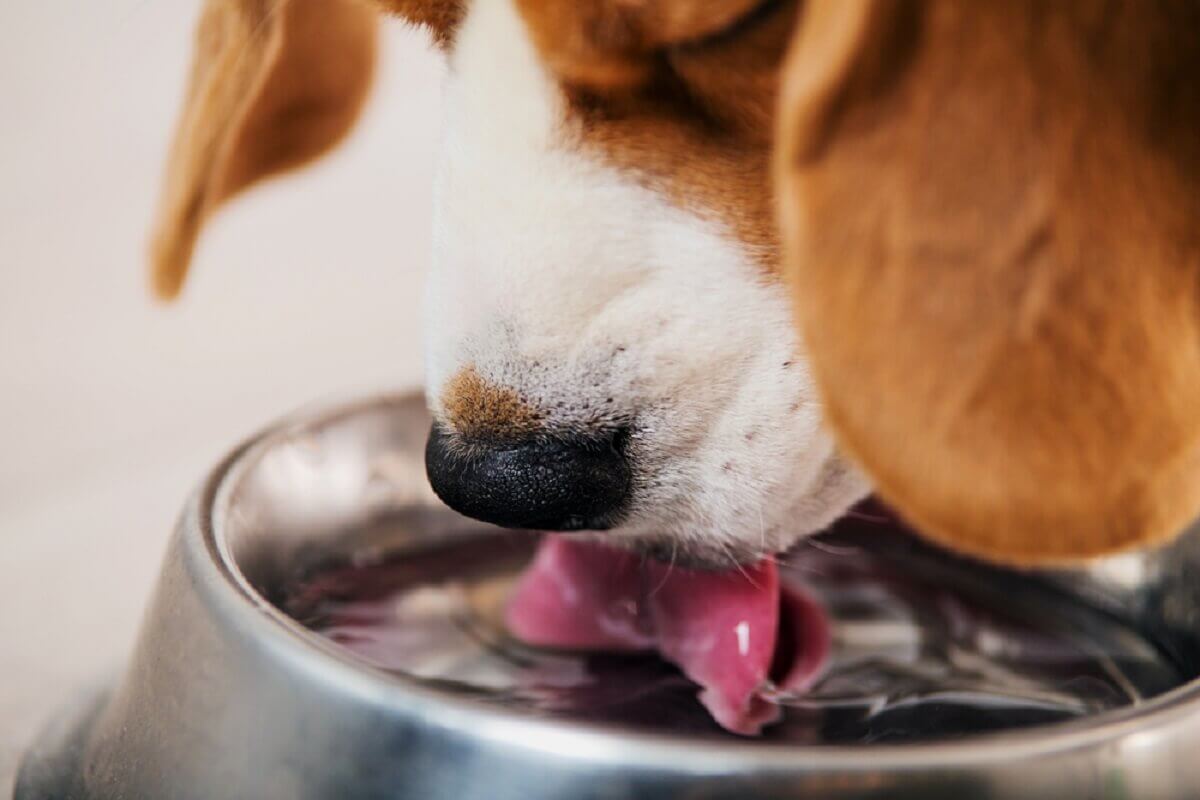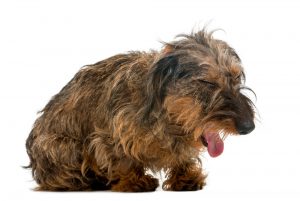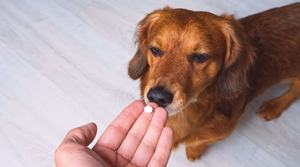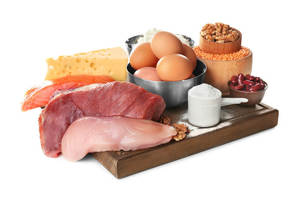Puppies will often have at least one or two unusual behaviors. While a quirk here and there is usually considered cute, there are times when these unusual behaviors can raise concern. One of these behaviors is a puppy obsessing over water.
Most puppies will be obsessed with water simply because they enjoy playing with it. However, occasionally obsessively drinking water can be a sign of anxiety or a medical issue in puppies.
In this article, we will be explaining all of the possible reasons why a puppy becomes obsessed with water. We will also be answering some other commonly asked questions from puppy owners about their puppies’ water-drinking habits.
Let’s dive right in!
Also Read: 7 Tricks To Get Dog To Drink Water
4 Primary Causes of Puppies Obsessing Over Water
There are about four possible reasons why puppies obsess over water.
Most of the time water obsessions in puppies are a sign that they simply enjoy playing in the water. However, resource guarding, anxiety, and a medical problem could all potentially be the cause of this unusual behavior as well.
Here are the four main causes of water obsessive behavior in puppies.
1. Your Puppy Likes Playing in the Water
Many puppies enjoy splashing and playing in the water. This often includes licking and laying in the water as well. Playing in water is a fairly normal behavior in puppies, especially if their breed typically loves the water. Labs, Golden Retrievers, and Newfoundlands are all great examples of water-loving dog breeds.
The only time when this should raise concern is if they develop resource-guarding behavior around the water. Similarly, this cause will not lead to puppies obsessively drinking water or showing signs of extreme thirst.
Any signs of anxiety around this water obsessive behavior suggest that one of the other causes is really the culprit as well.
2. Your Puppy is Hoarding a Resource
Puppies will sometimes hoard important resources when there is competition for them. This is most commonly seen with food and treats, but it can sometimes include resource-guarding water as well.
There are several different signs of resource-guarding behavior that puppy owners should be aware of. Most of the time a dog will growl or react aggressively whenever any animal or person approaches that resource. Similarly, many dogs that feel the need to hoard water will gulp down the whole bowl before anyone else can get to it.
Resource guarding is an anxiety-driven behavior in dogs. This issue mainly occurs when they feel as if their important resources could be taken away at any moment by a person or another animal.
This issue is most commonly seen in homes with multiple dogs or children that like to tease dogs by taking things away from them. Luckily, there are ways you can reduce this problem with training.
3. Your Puppy is Anxious
Anxiety can occasionally cause a dog to become obsessed with water.
However, it is far less common that the other causes mentioned. Usually, a dog will do this when they are experiencing anxiety as a way to cope with their stress. Most anxious dogs will exhibit other symptoms in addition to obsessive behaviors.
Some signs of anxiety to look out for in dogs include:
- Excessive panting and drooling
- Anxious body language (whites of eyes showing, hair standing on end, ears pinned back, etc.)
- Excessive barking, whining or howling
- Destructive behaviors such as chewing or digging
- Restless behaviors like pacing or excessive licking
4. Your Puppy has a Health Issue
There are a variety of health issues that could potentially cause increased thirst and urination in puppies. So, if your puppy is drinking tons of water then it is a good idea to take them to the vet.
This is especially true if the behavior occurs suddenly and is unusual.
How Much Water Should a Puppy Drink in a Day?
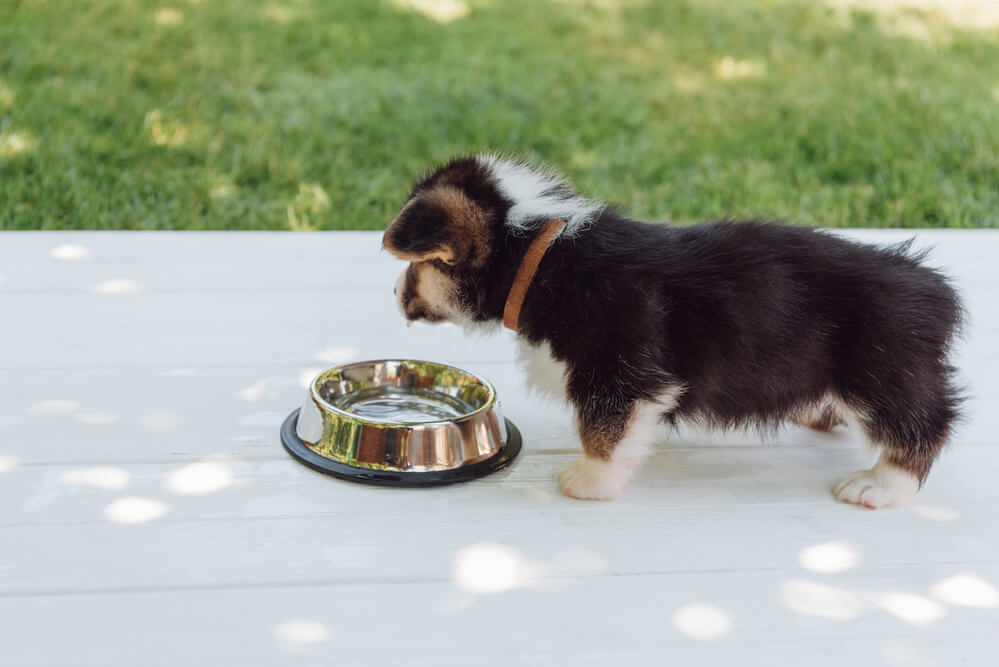
As a whole, puppies need more water on a daily basis than adult dogs do.
Here is a helpful chart explaining how much water a puppy needs per day. This chart is relevant up to a year to a year and a half in age depending on your dog’s breed.
Puppy Weight | Amount of Water Needed Daily |
|---|---|
1 pound | 0.5-1 ounce |
2 pounds | 1-2 ounces |
5 pounds | 2.5-5 ounces |
10 pounds | 5-10 ounces |
15 pounds | 7.5-15 ounces |
20 pounds | 10-20 ounces |
25 pounds | 12.5-25 ounces |
30 pounds | 15-30 ounces |
35 pounds | 17.5-35 ounces |
40 pounds | 20-40 ounces |
The general guideline that you should follow is giving your puppy either half an ounce or one ounce of water per pound in body weight. As your puppy ages into an adult dog, they will likely not need to drink this much water anymore.
Many things can go into how much water a puppy needs on a given day. For example, puppies will likely need to drink more on hot days and after a lot of physical activity. Giving your puppy more water in these moments is important as it will prevent dehydration.
Puppy Water Schedule
Some puppy owners may find it helpful to follow a water drinking schedule for their puppy. A puppy water schedule should fit in well with feeding times and potty breaks.
Here is a basic example of a watering schedule for a 20-pound 8-week-old puppy. The owner wakes up between 6 and 7 o'clock in the morning and goes to bed at 11 o'clock at night.
Morning
Between 6 and 7 am: The owner wakes up and takes their puppy out for a quick potty break. When they get back inside, the owner feeds the puppy their breakfast and gives them around 5 ounces of water. It is a good idea to get another 5 ounces of water into a bowl for later if they drink it all.
9 am: After some morning playtime, take your puppy out for a quick potty break. When you get back inside, offer your puppy some water from their bowl if they haven’t drunk any already. If you are restricting water due to excessive drinking, offer the water now.
11 am: Another two hours, another potty and water break. Remember, even just a little water every couple of hours is fine.
Afternoon
1 pm: Take your puppy for a potty break, then give them some water again. Now could also be a good time to feed your puppy lunch if necessary.
3 pm: Potty and water break again. You may need to fill up the water bowl again. Pouring 5 more ounces of water will help you keep track of how much your puppy is drinking.
Evening
5 pm: Potty break and offer some water. Remember, your puppy doesn’t need to drink a lot of water each time.
7 pm: Potty break then feed dinner. Most puppies like to drink water while eating their meal, especially when eating dry food.
8-9 pm: Since you are potty training your puppy, restrict food and water until the morning.
11 pm: Last potty break then go to bed.
Remember, puppies can have a wide range of water intake. They do not need to drink a ton of water each time it is offered to them. As long as your puppy is drinking at least half an ounce of water per pound of weight, they should be fine!
Should You Let Your Puppy Drink Whenever They Want?
Most puppies instinctively know when they are thirsty and need to drink water. As a result, it is a good idea to always have water available to them during the day. This is especially true on hot days and on days when they are engaging in lots of physical activity.
Knowing how much water you are putting into your puppy’s bowl can help you keep track of how much they are drinking. For example, putting 5 ounces of water into the bowl each time could be a good idea for a large or medium-breed puppy.
There are only a couple of times when puppy owners should restrict their puppy’s water intake.
The first is at night during potty training in order to prevent accidents.
The second is if you fear your puppy could make themselves sick from drinking too much water. It is important that you visit a vet if you are worried about your puppy over-drinking.
Should You Restrict Water for Your Puppy at Night?
Restricting your puppy’s water intake a few hours before bed can be really useful during potty training, especially early on. Doing this will help prevent your puppy from having an accident or crying to use the bathroom overnight. It is a good idea to do this with food during potty training as well.
A good rule of thumb to follow is to restrict your puppy’s water intake around 2 to 3 hours before you go to bed.
This is safe as long as your puppy gets access to water in the morning shortly after waking up. So, if you go to bed at 10 o'clock at night, it is a good idea to stop giving your puppy water somewhere between 7 and 8.
Signs of Dehydration in Puppies and Why You Should Always Look Out for Them

It is important for every dog owner to be knowledgeable of the signs of dehydration in dogs.
Here are some of the symptoms to watch out for:
- A dry nose and eyes
- Thick, sticky saliva
- Sunken-looking eyes
- Lethargy
- Vomiting
- Diarrhea
- Excessive panting
- A reduced appetite
- Reduced skin elasticity
Most of these symptoms are pretty straightforward, but reduced skin elasticity may need some further explanation. If you pick up a bit of your puppy’s skin and it falls back into place immediately, then your puppy is likely fine. However, if your puppy’s skin is still standing up after removing your hand, this is a sign that they are experiencing fairly severe dehydration.
If your puppy is only showing signs of very mild dehydration, then giving them some water to drink will likely get them back to normal. However, it is also a good idea to call your vet for further advice if you suspect that their dehydration is severe.
How Much Water Should a Puppy Drink During Potty Training?
Puppies should be given as much water as is recommended according to their body weight during the day. However, it is best to restrict their access to water a few hours before bedtime to prevent them from having an accident. This is a rule that is only necessary during potty training.
Restricting access to water a few hours before bed is beneficial because it prevents them from having a full bladder. This is especially true for puppies that are under three months old. Puppies this young will not be able to hold their bladder overnight if they have water right before bed.

